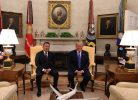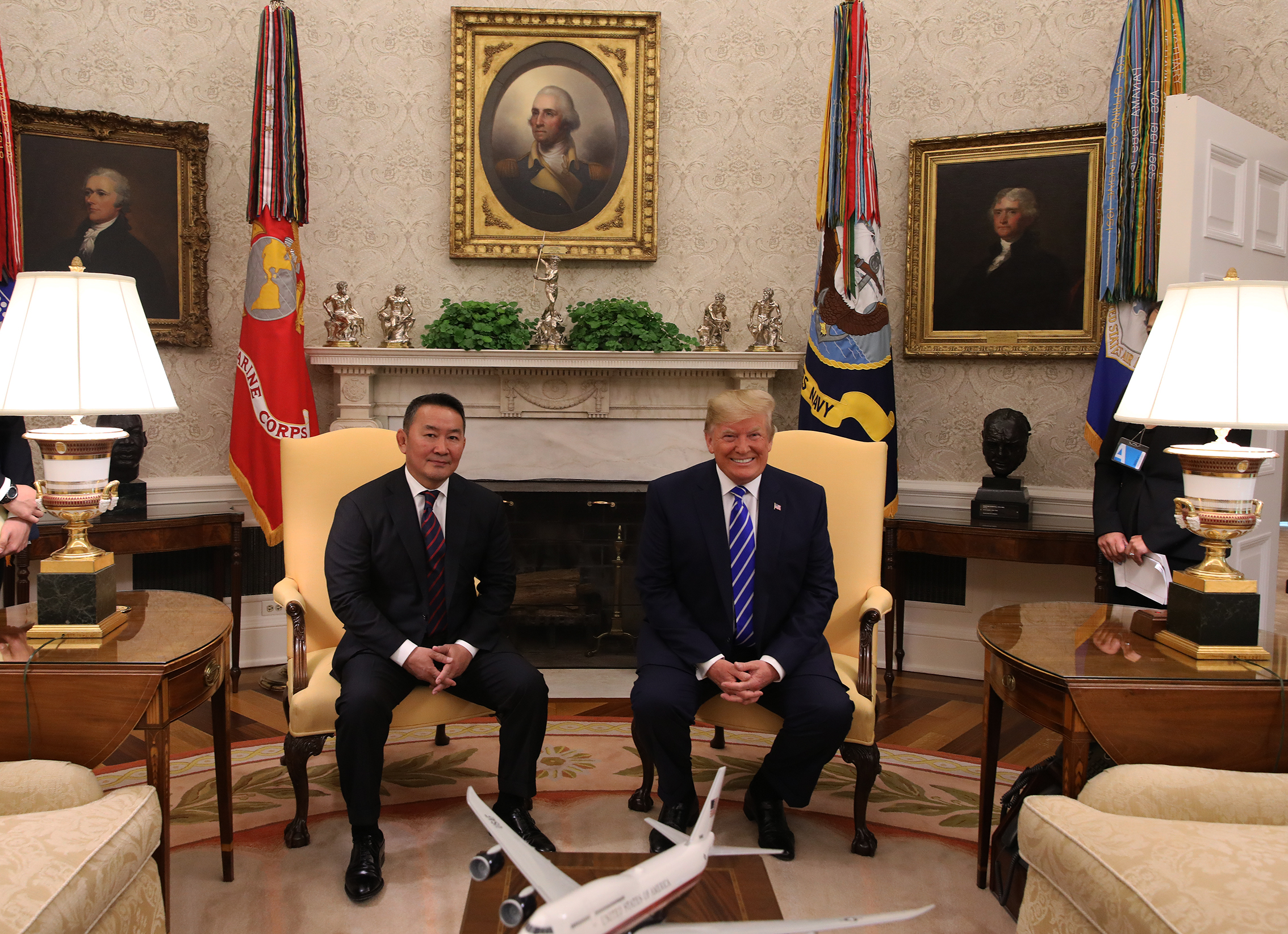DECLARATION ON THE STRATEGIC PARTNERSHIP BETWEEN MONGOLIA AND THE UNITED STATES OF AMERICA
The text of the following statement was released by the Governments of Mongolia and the United States of America on the occasion of the visit of His Excellency Khaltmaagiin Battulga, President of Mongolia, to the United States of America, and the meeting between President Battulga and Donald J. Trump, President of the United States of America.
RECOGNIZING that the basic principles set forth in the 2007 Declaration of Principles for Closer Cooperation, and supported by the 2004, 2005, 2011, and 2018 Mongolia-United States Joint Statements, have provided a firm foundation for the development of the bilateral relationship;
ACKNOWLEDGING that relations between Mongolia and the United States of America have grown stronger and closer based on common strategic interests, shared democratic values, good governance, principles of sovereignty, and respect for human rights;
RECOGNIZING the Joint Statement and the Roadmap for Expanded Economic Partnership between Mongolia and the United States of America signed in Washington D.C. on September 20th, 2018;
DESIRING to increase economic opportunities, create new jobs, and reduce poverty through economic growth, investment, and free, fair, and reciprocal trade;
ACKNOWLEDGING that Mongolia and the United States of America have a mutual interest in cooperating more closely to ensure peace, security, and stability in the region;
GUIDED by the joint intent to continue expanding and developing relations across all areas of cooperation, including political, economic, cultural, educational, humanitarian, and people to people ties in order to meet evolving challenges and to maximize new opportunities;
AFFIRMING that Mongolia and the United States of America share the principle of respect for national independence, sovereignty, and territorial integrity;
The governments of Mongolia and the United States of America hereby declare their relationship to be a Strategic Partnership, and further note their shared desire to:
- Intensify cooperation as strong democracies based on the rule of law through safeguarding and promoting democratic values and human rights, including the freedoms of religion or belief, expression, including internet and media freedom, assembly, and association; anti-corruption and fiscal transparency; and youth and emerging leader development;
- Cooperate in promoting national security and stability across the Indo-Pacific region so that all nations, secure in their sovereignty, are able pursue economic growth consistent with international law and principles of fair competition;
- Deepen national security and law-enforcement ties through collaboration on bilateral and multilateral security, judicial, and law-enforcement efforts in the region and to strengthen cooperation in multilateral engagements such as peacekeeping, humanitarian assistance, and disaster preparedness and relief operations;
- Expand trade and investment relations on a fair and reciprocal basis, support private sector-led growth, fully implement the U.S.-Mongolia Transparency Agreement, promote women’s entrepreneurship, and continue to explore support for infrastructure under the new Development Finance Corporation with the new tools provided under the BUILD Act;
- Strengthen border security, prevent illegal transshipment and trafficking, expand cooperation on civil aviation safety and oversight, and efficiently facilitate legitimate travel between Mongolia and the United States;
- Increase cooperation in addressing transnational threats such as terrorism, human trafficking, drug trafficking, the proliferation of weapons of mass destruction, cyberattacks, transnational organized crime, pandemics, and other emerging non-traditional security threats;
- Continue to develop an environment in which civil society, social media, and a free and independent media can flourish;
- Maintain high-level official dialogues, encourage bilateral exchanges at all levels of government, and further develop people-to-people exchanges to deepen engagement on issues of mutual interest and concern.
Washington D.C., July 31, 2019


